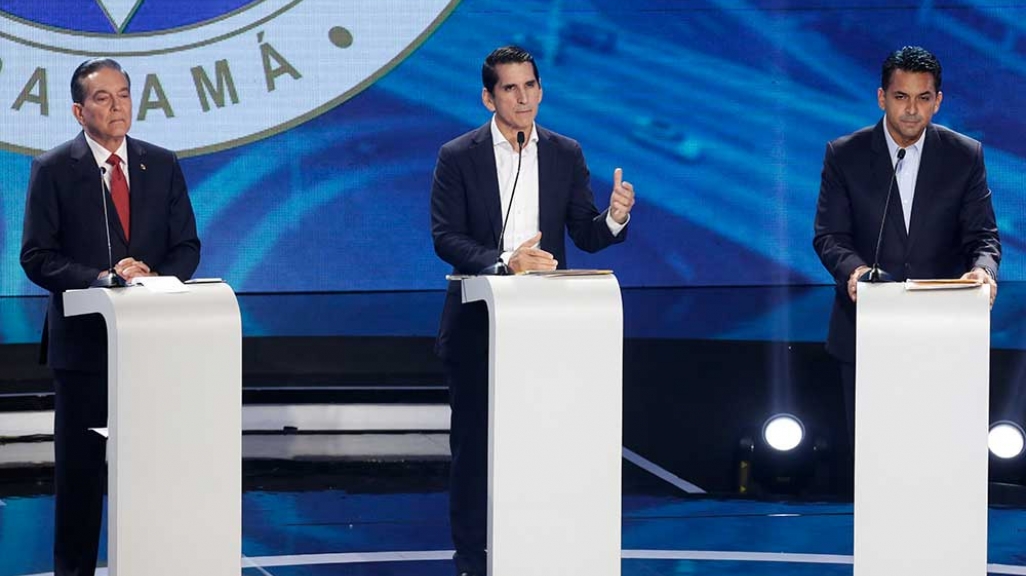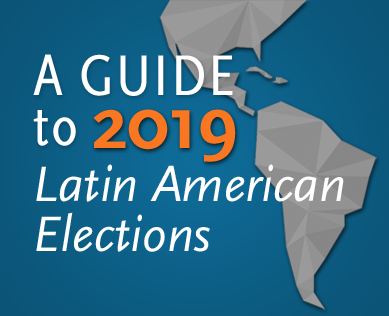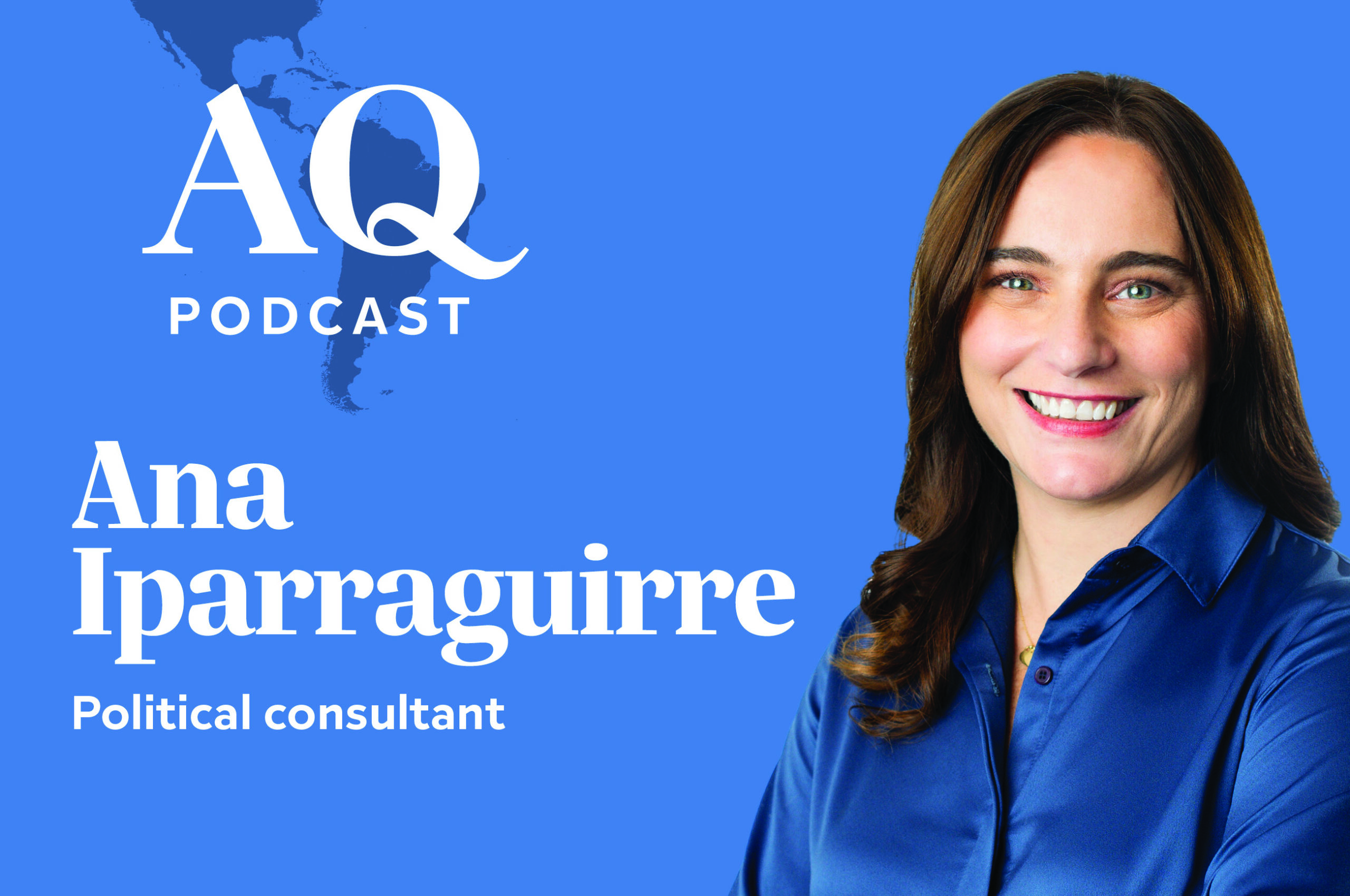What to Watch ahead of Panama's May 5 Election
What to Watch ahead of Panama's May 5 Election
One candidate leads, but polls have been wrong before.
It’s the final stretch before el puente del mundo chooses a new government. On May 5, two-thirds of Panama’s 4.1 million citizens will be eligible to cast their votes for a new president and vice president, National Assembly, and the mayors of their respective cities. Sunday’s vote will be Panama’s fifth democratic election since the 1989 U.S. invasion that ousted the dictatorship of General Manuel Noriega. Since then, the presidency has rotated between the current governing Panameñista Party (PAN) and the Democratic Revolutionary Party (PRD), with one Democratic Change (CD) administration along the way. The PRD, which has won two of the last five elections, is set to win the office for a third time, according to a number of pollsters. There’s only one problem: the polls have been wrong before.
There is no runoff in Panama. As the final hour nears, we take note of the elements at play in the top two races—the presidency and the competition to manage the capital—ahead of election day.
The frontrunner and the independent
Opposition candidate Laurentino “Nito” Cortizo got off to a running start since he won the PRD’s crowded primary by a landslide. Despite a 17-candidate field, the businessman-turned-politician took 67 percent of ballots. Cortizo has a number of advantages, including more than 25 years of experience in the political arena, the largest voter base in the country (half a million voters affiliate themselves with the PRD), and few personal scandals.
Throughout the campaign season, Cortizo has maintained a double-digit lead in polls over his closest competitor, Rómulo Roux, a U.S.-trained lawyer who chaired the Panama Canal Authority and is now the CD’s presidential candidate. With political experience holding various positions in Ricardo Martinelli’s cabinet, Roux both benefits from and is hurt by the former president’s fame and corruption scandals.
Battling for third place are the ruling party’s José Isabel Blandón and independent candidate Ricardo Lombana, the latter of whom went from fifth to third in the last week of March, per Stratmark Consultores. In the pollster’s last survey ahead of Sunday, however, Blandón took back third place with 11.3 percent of voter intention, though the difference with Lombana falls within the margin of error.
With Panamanians unused to electing the same party for consecutive terms, Blandón has faced difficulty distancing himself from the unpopular President Juan Carlos Varela, who has made little progress on his own campaign promises to combat corruption and reform the Constitution. Meanwhile, Lombana, who worked as a journalist and editor for one of the country’s biggest newspapers, La Prensa, and later as an attorney, has focused his message on tackling corruption. However, his candidacy lacks the financial backing of a registered party.
The trouble with polls
For either Blandón or Lombana to win the race at this point is a long shot, but if the past is any indication, Panamanians know to expect the unexpected. In the runup to the 2014 election, Varela was polling third but won the presidency with a plurality (39 percent) of the votes.
The frequency with which pollsters get it wrong is a common phenomenon across the region. A report by the Centro Estratrégico Latinoamericano de Geopolítica (Celag) looked at 17 elections—from referenda to presidential votes—from 2012 to 2018 that took place across 14 countries in Latin America. Of the 17 votes analyzed, pollsters failed to predict the outcomes of 11, Panama included. Celag determined that erroneous methodologies were widespread, including faulty sampling and a lack of criteria to properly determine undecided votes, as well as political bias of pollsters and/or their backers.
In Panama, companies that want to carry out surveys about the election must register with the Electoral Tribunal. While a handful of pollsters have officially registered, only Stratmark Consultores has published polls regularly. La Estrella, the country’s oldest newspaper, commissioned and published the polls but reporting undecided or blank votes is inconsistent.
This week, one of Stratmark’s directors, Jaime Sosa, swore that the survey methods were honest and representative of Panama’s 2.7 million voters. He told La Estrella, that if his polls prove incorrect, “I’ll go into exile. Have them hang me.”
Meanwhile, another pollster has published results markedly different from those of Stratmark. Doxa Panamá’s April 23–28 poll, commissioned by the purportedly independent daily Panamá América, gives Roux the upper hand with 32 percent to Cortizo’s 30 percent, though the margin of error is unclear.
The capital’s mayoral race
After the presidency, the mayoralty of Panama City, where more than 800,000 Panamanians live, is considered the most important office in the Central American country. Until recently, the electoral headlines focused on Martinelli’s run for the post along with his bid for Congress. But on April 26, Panama’s Electoral Tribunal barred the former president—in jail since June 2018—from running for office over charges of wiretapping his opponents during his 2009–2014 administration. Martinelli is appealing the decision.
Stepping in to carry the CD mayoral banner is Sergio “Chello” Galvéz, who says that he intends to implement Martinelli’s government plan. A legislator in the National Assembly for over 20 years, Galvéz first ran for deputy in 1989. He’s since been a dominant political figure, known as the “Robin Hood” of El Chorrillo, one of the capital’s poorest and most dangerous neighborhoods. Galvéz, who has been affiliated with different major parties over time, was elected to head the legislative branch in 2012 under the CD banner.
Still, his eccentric personality and notoriety may be why Galvéz is in second place in Stratmark’s poll of the mayoral race. In the lead is the PRD’s José Luis Fábrega, who also ran for the post in 2014. A deputy in the National Assembly for 15 years, Fábrega is known as the “Gas Tank Man” for a public works project he wrote up plans for in Panama City. He’s promised to tackle graft and to not undertake mega projects which he says do more harm than good, referring to contracts with corruption-embroiled construction companies like Odebrecht. City residents have also blamed Blandón, the current mayor, for unfinished construction projects.








